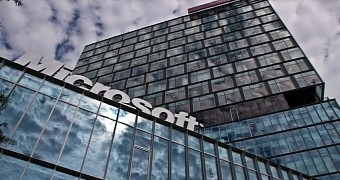Microsoft has just managed to achieve another important milestone in its history, as it closed with a market value of more than $1 trillion on Tuesday.
The Redmond-based software giant first reached this threshold in late April when its stock jumped 3 percent to $130.50, pushing the market cap to over $1 trillion in after-hours trading.
On Tuesday, shares were up 0.6 percent to $130.60, turning Microsoft into the second company to reach $1 trillion market valuation after Apple.
Analysts have been predicting Microsoft reaching this milestone for several years already. Morgan Stanley, for example, said last year that Microsoft’s market valuation would be propelled by its cloud business, which posted strong performance and became the main catalyst of its long-term growth.
“With Public Cloud adoption expected to grow from 21% of workloads today to 44% in the next three years, Microsoft looks poised to maintain a dominant position in a public cloud market we expect to more than double in size to >$250 billion dollars,” analyst Keith Weiss said at that point.
Apple: Not something to brag about
Interestingly, Apple, which is the first company to ever reach $1 trillion market cap, downplayed this historic milestone.
CEO Tim Cook said that despite the company’s market value increasing, this “isn’t the most important measure of our success.”
“Financial returns are simply the result of Apple's innovation, putting our products and customers first, and always staying true to our values,” he said.
Microsoft’s CEO Satya Nadella hasn’t commented on this milestone, but he praised the company’s cloud push in the latest earnings report.
“Leading organizations of every size in every industry trust the Microsoft cloud. We are accelerating our innovation across the cloud and edge so our customers can build the digital capability increasingly required to compete and grow,” Nadella said in late April.
Microsoft reported revenue $30.6 billion in revenue for FY19 Q3, up 14 percent year over year.

 14 DAY TRIAL //
14 DAY TRIAL //